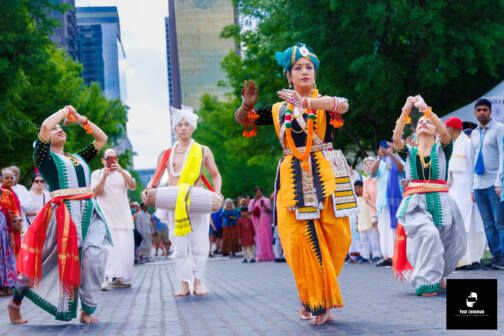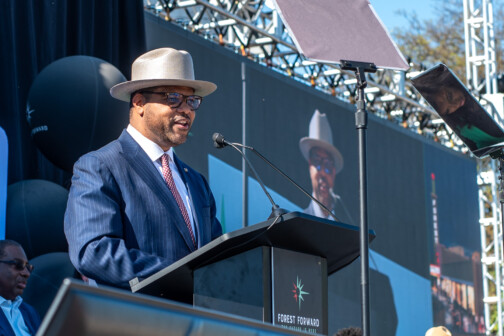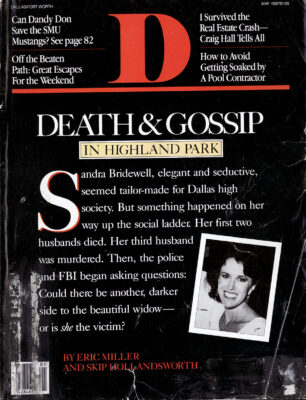A uniformed traffic policeman stands on a small, circular platform in the middle of the intersection doing a frantic hula with his hands and hips, blowing his whistle with shrill exactitude. Instead of the blue choke of car exhaust, the impatient bleat of horns, and bumper-to-bumper lines, the streets are tangled with the spokes, pedals, and chaotic choreography of thousands upon thousands of bicycles. The riders move shoulder to shoulder in silence while their bicycle bells ring a tinny chorus. They ride at least fifteen abreast, weaving wordlessly, careening, whizzing inches away from collision. This is business as usual, another rush hour in downtown Zhaoqing, China.
Zhaoqing, a scenic city and popular tourist destination in China’s Guangdong province, is a stopping point on the tenth day of my eighteen-day China Passage South China bicycle trip. The six people on the trip-two attorneys from Seattle, a geologist and a hospital administrator from Colorado, an Australian nurse, and myself-are clearly nervous about maneuvering through the metal web of bicycles in the city’s center. Each of us has eschewed the tour bus alternative. Rather than view the sights from air-conditioned isolation, we chose to mingle with the inhabitants of the world’s largest and most populous country from the seat of a bicycle.
Day One, Hong Kong-We all meet and take an overnight steamer up the Pearl River. None of the six of us is Olympic material. My fear was that everyone on the trip would have thighs as big around as a redwood and pedal for miles without blinking.
Day Two, Xiqiao-We ride at a comfortable pace and pull over whenever we want to for a drink or a photo. Our ten-speeds look like some sort of futuristic machinery to the Chinese. Every time we stop on the side of the road we are immediately surrounded by villagers rubbing their chins in curiosity, muttering in Cantonese.
We biked twenty kilometers this atternoon beneath the searing South China sun, stopped en route in a small mud-cluster village, and walked our bicycles through the main street market where the villagers were squatting over their vegetables and wares. As we pedaled to the outskirts of the pinpoint town we passed a dazibao, an enlarged billboard, showing a Chinese couple beaming contentedly while holding a baby. The billboard extolls the virtues of the single-child mandate that the Communist Party has preached since the late Seventies to keep the population down.
After a ferry ride across a muddy, swollen river, we reach Xiqiao and an incredible hotel 400 meters high in the mountains. In its former life the hotel was an old learning center built for scholars during the Ming Dynasty (1368-1644). The mossy roofs, lakes with pagodas, stairways winding into the mountains, and waterfalls were meticulously constructed to aid contemplation. Calligra-phers practiced their delicate, manicured art here; the evidence is carved into the rocky hillside in poems and bits of ancient wisdom.
To the Chinese we owe the invention of paper, printing, dictionaries, and encyclopedias. With the Chinese we associate silk, tea, fireworks, and slow boats. And from the Chinese I learned a new appreciation of two-wheeled transportation.
The bicycle is to China what the car is to the United States. About thirty-eight years ago when Communists assumed control of the country, the bicycle was deemed the primary mode of transportation. The automobile was pooh-poohed as too costly, too taxing on the country’s resources, and too bourgeois. The official Chinese census in 1982 tallied the population at more than one billion and yet there are fewer than one million cars, most of them used as taxis or for officials. Bicycles fill the streets, carrying everything from an extra passenger or two to furniture and building materials. “Black bombers” is what one of the trip participants dubbed the standard-issue black bicycle the Chinese ride, Patterned after the pre-World War II British Raleigh, with thick tires, fenders to ward off the splat of mud, two oversized metal-coil shock absorbers, and a cast iron and steel frame, the bicycles can withstand the unpaved roads, the elements, and the mileage. Most of them outlive their owners.
Day Three, Foshan-I vote for scrapping the sense-of-adventure routine, and I feel okay vetoing some of the food put before us on the table. Where is it written that I have to try everything? “The Chinese have a simple rule for feeding foreign guests: serve them too much.” This observation, penned in The China Guidebook, a bible of information about travel in China, is proving true on this trip. But the book neglected to mention exactly what they serve too much of. Dinner last night was duck complete with head and feet, fish complete with scales and eyes, and little stir-fried birds, complete with everything except feathers and cute little names. Today it was pig knuckles, squid, eel, frog, and the usual plates of fungus and grasses, plus soup. I remember reading that the Chinese cuisine in Guangdong province was-what was the word?-creative. “In the heavens, all that can fly are eaten except aeroplanes. On land, all with four legs are eaten except tables.” says an old Chinese adage. This does nothing to restore my appetite.
Shrouded in mystery and history, China was, until recent times, one of the most closed societies in the modern world. In the late Seventies, as the Cultural Revolution was coming to a close, the first throngs of tourists arrived, taxing the already short supply of hotel space. There were about forty cities open to tourism then, and the Chinese were unprepared for the demands on hotels and restaurants that visitors bring along with their dollars, yen, or marks. In the Eighties the Chinese completed a radical attitudinal change. No longer were foreign visitors pegged as barbarians; instead, an open-door policy actively courted and promoted tourism. To accommodate the growing numbers of tourists, many new hotels and restaurants opened within the last five years. The number of cities open to foreign visitors also increased in the past five years from the initial 40 to 257 as of 1986.
Day Five, Zhaoqing-Sampled mao tai last night, a 106-proof jolt of alcoholic fire the Chinese swill without wincing. After one sip I was sure my esophagus was a thing of the past. Tom, our guide from the Chinese Sports Federation, led us through a round of toasts and in the name of improved international relations we kept drinking.
A short ride this morning was interrupted by a herd of buffalo plodding across our path on a dirt street. Water buffalo are the essential farm animals in the southeastern region of China. They are used as tractors, station wagons, wheelbarrows, and food sources. Tethered by ropes looped through their tusky nostrils, the buffalo sell for more than $500 on the livestock market.
One of the primary draws of bicycling is the chance to ride through the rural areas where most of the Chinese live. Rather than being awestruck with the man-made monuments, my most vivid impressions are of rural scenes. “Like brocade and embroidery” is how the Chinese describe the diversity of landscape in their country: women with baskets balanced on their shoulders; the deafening, rickety roar of farm machines puttering down the streets; the bent backs of the old people who have leaned over their shovels and hoes all their lives, eking food out of this clay-red soil. There are 800 million peasants in this country. They are the machinery keeping China oiled and functioning. The beauty of this country is in the land and in the people who rake and coddle the earth, who pray for rain and rejoice after a harvest.
Day Six, Shaping-We bike through the most stunning scenery. One minute I feel as if I am in the steamy tropics, the next moment I am in an arid, mountainous region. Palmetto bushes and banana trees grow in clumps near the waterline. Mountains jut unexpectedly from acres and acres of rice fields. Terraces of green vegetables and grasses line the roads.
We take a ferry and bike for three hours in the afternoon over unpaved roads to Shaping. Busloads of blank-faced peasants call up the courage to shout hello. They greet us with rapt attention to our bicycles whenever we stop, and do double takes on the road. And always, crowds, crowds. One of the most detailed, personal guidebooks for travel through China warns that spitting and crowds are two of the things that can rankle visitors most about China. The spitting I can take, but sometimes I feel as if we are the afternoon entertainment-cheaper than a movie and three-dimensional to boot.
Our hotel sits on precarious stilts in the middle of a swamp. Encasing it is bamboo scaffolding, evidence of the construction underway to accommodate the growing legions of tourists. To reach the hotel we wheel our bikes over a bridge that winds its way in jerky angles to the lobby. “The bridge is twisted to keep the evil spirits away,” our leader David explains. Architectural rationale at its simplest. For dinner we have some part of an animal I am afraid to identify. We’ve also had a chance to sample owl, wasp larvae, and cat. At this point I would kill for a burrito.
Day Nine, Guangzhou-Back in bustling Guangzhou (or Canton as it is known in the West) today, the nerve center and capital of Guangdong province. The rain was relentless; we scratched a bike tour of the city, Instead, the group opts for a western-style eat-a-thon. Enough duck feel. After cheeseburgers, french fries, and dark, dense chocolate cake we head for the poshest hotel in town, the White Swan. In its concrete affluence, it is testimony to the Chinese courting of overseas tourist dollars. This could be a Hilton in Anywhere, USA-until the drink menu is opened. The special of the day is a concoction called a Horse’s Neck. As we place our orders, the waitress asks if we would like to hear some western music. Sure. She puts on “Jingle Bells.” It is September.
Goat City, as Guangzhou is known in legends and myths, has undergone radical changes from its legendary beginnings. Ancient folklore says five gods riding goats descended from the heavens bearing rice stalks and promises that the city would never suffer from famine. The metropolitan hub seems far from lean times today. The city stands as an enclave of capitalism in the People’s Republic and a working example of Deng Xiaoping’s ongoing economic modernization program. Goat City is clearly thriving in its free market swell.
Day Ten, Conghua~Out of the city today and back on the road again. Today’s bike ride is our longest, a sixty-five-kilometer, all-day jaunt. After our picnic lunch on a dike between rice fields I was barreling down the road when a chorus of “hellos” came my way from three little boys crouched in the grass on the side of a hill. They couldn’t have been more than seven or eight years old, with round, dusty faces and pants worn away at the knees. All three wore pointed straw hats and stared at me with blank scrutiny, filled with questions in a language I was helpless to understand. The absolute beauty of their faces, their innocence, and the sight of the three of them crouched on the hillside as the sun hung behind their hats created a scene I didn’t want to leave behind. The three little boys typified an image of the China I had seen most from my bicycle-rural, unfettered by materialism, true to the earth, and so far away from my familiar world of pantyhose, monthly payments, and alarm clocks. Which are the memories that will remain after the yellowing process of time? The images shoot through my mind. Some will stick, others will fade. But I will always remember China for her vastness and the striking, forlorn beauty of a people who work the earth.
China Passage is just one of several organ izations that offer bicycling tours through the country. The South China Explorer trip through China Passage costs $2,125 includ ing airfare from the West Coast. Land cost only for the eighteen-day trip is $1,475. There is an optional five-day Beijing extension for an additional $675. For more information about the South China Explorer or any of China Passage’s bicycle trips, contact China Passage, 168 State Street, Teaneck, New Jersey. 07666. 1-800-247-6475.
Get our weekly recap
Brings new meaning to the phrase Sunday Funday. No spam, ever.
Related Articles

Arts & Entertainment
‘The Trouble is You Think You Have Time’: Paul Levatino on Bastards of Soul
A Q&A with the music-industry veteran and first-time feature director about his new documentary and the loss of a friend.
By Zac Crain

Things to Do in Dallas
Things To Do in Dallas This Weekend
How to enjoy local arts, music, culture, food, fitness, and more all week long in Dallas.
By Bethany Erickson and Zoe Roberts

Local News
Mayor Eric Johnson’s Revisionist History
In February, several of the mayor's colleagues cited the fractured relationship between City Manager T.C. Broadnax and Johnson as a reason for the city's chief executive to resign. The mayor is now peddling a different narrative.


